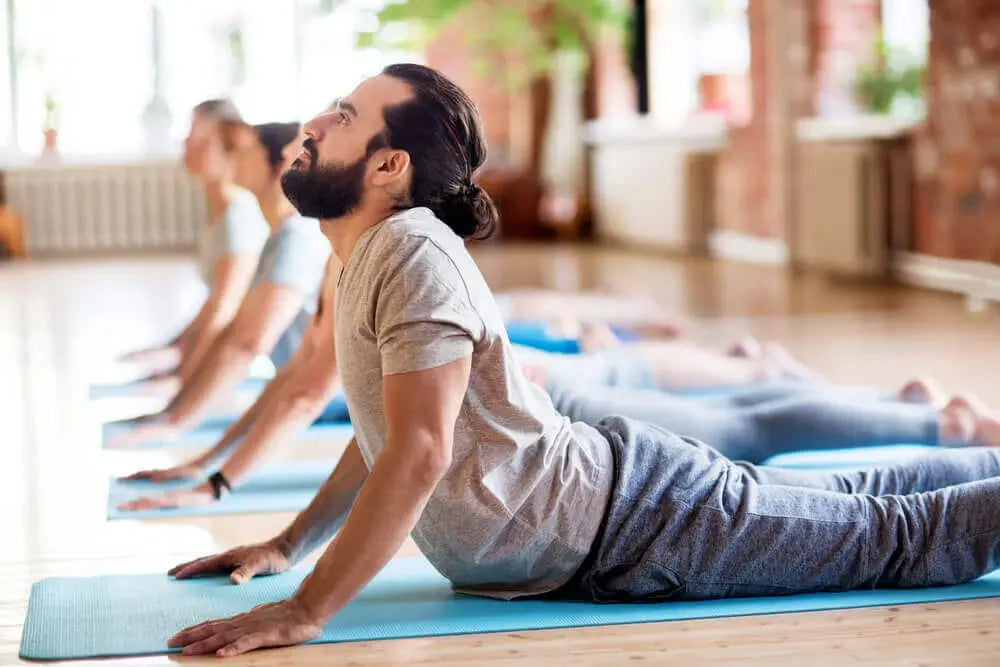Signs And Symptoms of Stress And Anxiety in Men
Evidence Based
All the information in this blog post is accurate, trustworthy, scientifically based and has been written and fact-checked by our experts and doctors.
Our licensed nutritionists and dietitians are committed to being objective, unbiased and honest, presenting all sides of the argument.
This article includes scientific references in brackets, which are clickable links to research papers from reputable academic organizations.

If you walk down the pharmacy aisle at your nearest store, you are sure to notice a large number of stress relief pills and other medicines for stress and anxiety. Stress and anxiety are widespread in today’s India. A shocking 74% of Indians suffer from anxiety, and 88% of Indians suffer from stress.
Both stress and anxiety do not discriminate and can affect both men and women, the young and the old. Both these psychological conditions impact each individual uniquely, and we all react to them differently.
Did you know women are more likely to experience stress symptoms than men? While this is true, studies have shown that women manage stress better than men. However, men are also prone to both stress and anxiety. So, before you go ahead to try stress and anxiety tablets, read on to find out more about the signs and symptoms of stress and anxiety in men and how best to manage these conditions.
Signs and Symptoms of Stress and Anxiety in Men
Before you decide to take the best stress reliever medicine or recommend one to your loved ones, you must be able to recognize the signs and symptoms of stress and anxiety in men.
Signs and Symptoms of Stress
They can be divided into physical, psychological, and behavioral signs:
Physical Signs and Symptoms
- Headache
- Digestive issues like constipation and diarrhoea
- Stomach upset
- Muscle tension in the body
- Pain in the chest, neck or back region
- Generalized fatigue and tiredness
- Difficulty in concentrating on daily tasks
- Heartburn
- Inability to achieve an erction
Psychological Signs and Symptoms
- Anxiety
- Depression
- Increased restlessness and irritability
- Short-temper
- Reduced interest in sex
Behavioral Signs and Symptoms
- Changed eating habits (over-or undereating)
- Drug abuse
- Alcoholism
- Loss of will to exercise
- Gambling
- Smoking
- Sleep issues and insomnia
- Obsessive-Compulsive Disorder (OCD) behaviors
Signs and Symptoms of Anxiety
Some common symptoms of anxiety in men include:
Physical Signs
- Excessive sweating in palms and feet
- Muscle tension in the neck, jaw, and back
- Restlessness
- Increased agitation
- Pounding in the heart
- Insomnia and sleep issues
- Shortness of breath
- A feeling of choking in the throat
Emotional Signs
- Frequent thinking or obsession with worry that something will go wrong
- Sadness or depressive feelings
- Dreading something that might happen
- Issues with concentrating on daily activities
- Paranoid thinking
- Avoiding the trigger of anxiety
- Irritability
- Fear that you may lose control
Management of Stress and Anxiety in Men
Stress and anxiety can both impact one’s quality of life. Therefore, these conditions must be treated quickly to allow the individual to return to their everyday, routine life. The best place to begin stress and anxiety management is by visiting a psychiatrist or psychologist. A registered practitioner of these two principles can help diagnose your condition, identify a cause, and provide the best way to treat them.
While most individuals are prescribed medicine to reduce stress and anxiety, most mental health practitioners also emphasize healthy lifestyle habits like – getting enough sleep, eating a healthy diet, avoiding smoking and alcohol, and regular exercises. In addition, cognitive behavioral therapy (CBT) is also very effective in reducing symptoms of anxiety and stress in men.
Other effective ways of reducing stress in men include:
- Cutting Back on the Stressors: identify what is causing your stress and reduce your exposure until you can effectively manage it.
- Spending Time with Others: men tend to withdraw from social situations when stressed or experience anxiety. Spending time with others is an excellent way to take your mind off your stress and relax.
- Exercise: Believe it or not, regular exercises are highly beneficial to reduce stress and anxiety. When you exercise, your body releases ‘happy hormones’ that make you feel good instantly. So go for a walk, run or cycle to relax your mind and bust that stress!
- Pursue Your Hobbies: Hobbies are not just for passing your time but are great ways to manage lifestyle conditions like stress and anxiety.
Key Takeaway
Men are not immune to stress and anxiety. Though they are less likely to experience these conditions, they are also less likely to accept or seek help for managing these conditions. If you experience any signs and symptoms of stress or anxiety or know someone who does, consult with your doctor immediately.
Disclaimer: The information provided on this page is not a substitute for professional medical advice, diagnosis, or treatment. If you have any questions or concerns about your health, please talk to a healthcare professional.
 Evidence Based
Evidence Based






Leave a comment